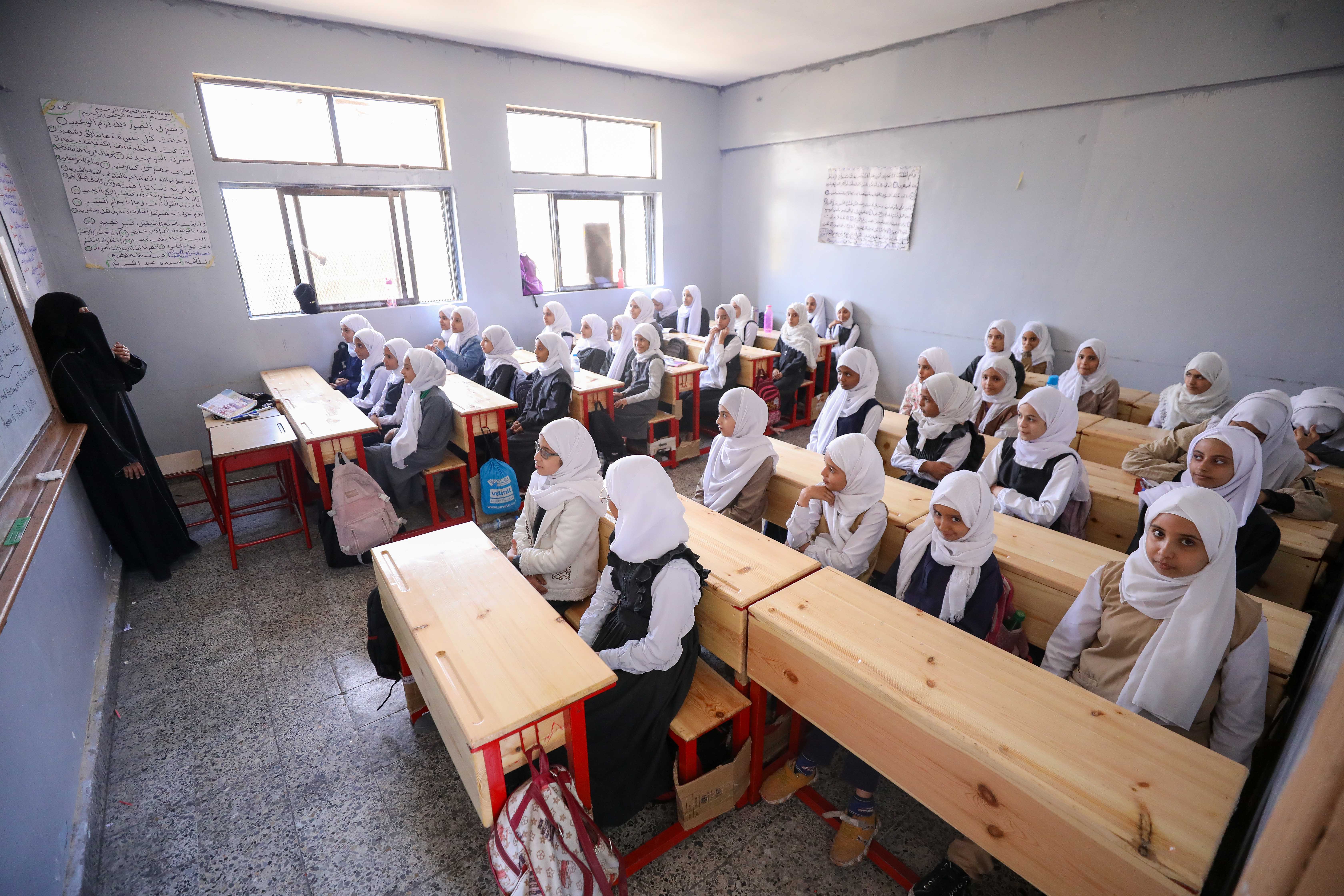Supporting local authorities in Al-Qahira, Yemen to equip educational institutions
August 26, 2024

Students at one of the schools equipped with desks and chairs by Al-Qahira local authorities with support from the SIERY project.
In Yemen, communities have suffered for nearly a decade from the consequences of prolonged conflict, which has strained the capacity of institutions to address infrastructure challenges, including for educational institutions. Throughout the conflict it is estimated that thousands of schools across Yemen have sustained damage or are no longer functioning, hindering children and young people’s access to education.
With a large influx of internal displacement and limited funding, many schools had to accommodate for greater numbers of students than their capacity allowed, leaving many children to sit on the floor or in uncomfortable positions, further discouraging attendance and affecting the ability of children to focus on class. This can lead to lower academic performance and decreased overall educational outcomes.
Recognizing the critical role of local authorities in addressing their communities’ needs, the Strengthening Institutional and Economic Resilience in Yemen (SIERY) Project works with them to build the capacity of their personnel to develop District Resilience and Recovery Plans. Key to this approach, is establishing District Recovery Platforms (DRPs) where district authorities, civil society organizations, and private sector representatives come together to identify local priorities and develop plans for recovery and development through dialogue and collaboration. Accordingly, the SIERY Project supports the implementation of the public priorities outlined within their plans. To date, over 120 public priorities have been supported across 45 districts, ranging from construction of health and waste facilities to water infrastructure, and installation of solar energy systems. Among the supported priorities is equipping eight schools with over a thousand chairs in Al-Qahira District, Taiz.

School students receiving a lesson in one of the schools equipped with desks and chairs by Al-Qahira local authorities with support from UNDP’s SIERY Project, funded by the European Union
According to Mahmoud, Director of Al-Qahira District’s Education Office, “The conflict has had a negative effect on the learning process and overall education situation. Schools have been looted, broken into, and damaged, resulting in poor school equipment. Most students are left without proper seating; in many instances sitting on the ground.”
Zainab, the principal of the 7th of July School for Girls, emphasized the lack of chairs as a significant challenge, stating, “The shortage of chairs is a major problem in our school, as most of the available chairs are old and falling apart.”
One of the sixth graders at the 7th of July School for Girls, described the difficulties faced by students, saying, “We were sitting on the floor without chairs. Due to overcrowding, it became challenging to hear and see the blackboard, which is placed high, and the individual chairs in the classroom are old. Two of us had to share one chair, causing discomfort while writing.”

The provided chairs and desks in the yard of one of the schools equipped by Al-Qahira local authorities with support from the SIERY Project.
Zainab, the Director of the 7th of July Girls School, expressed, “After receiving this furniture, our school’s capacity has increased, allowing us to open new classrooms and solve the problem of overcrowding. Today, we can welcome more displaced students in the school, something we could not do before the provision of these chairs.”
“Our situation improved significantly. We can hear our teachers clearly, understand the lessons, and study comfortably," explains another student at the same school.
Education increases quality of life for families and communities and boosts employment opportunities. The SIERY Project remains steadfast in its commitment to supporting local authorities in Yemen to restore and enhance educational infrastructure.
These activities were made possible thanks to generous funding from the European Union.

 Locations
Locations

